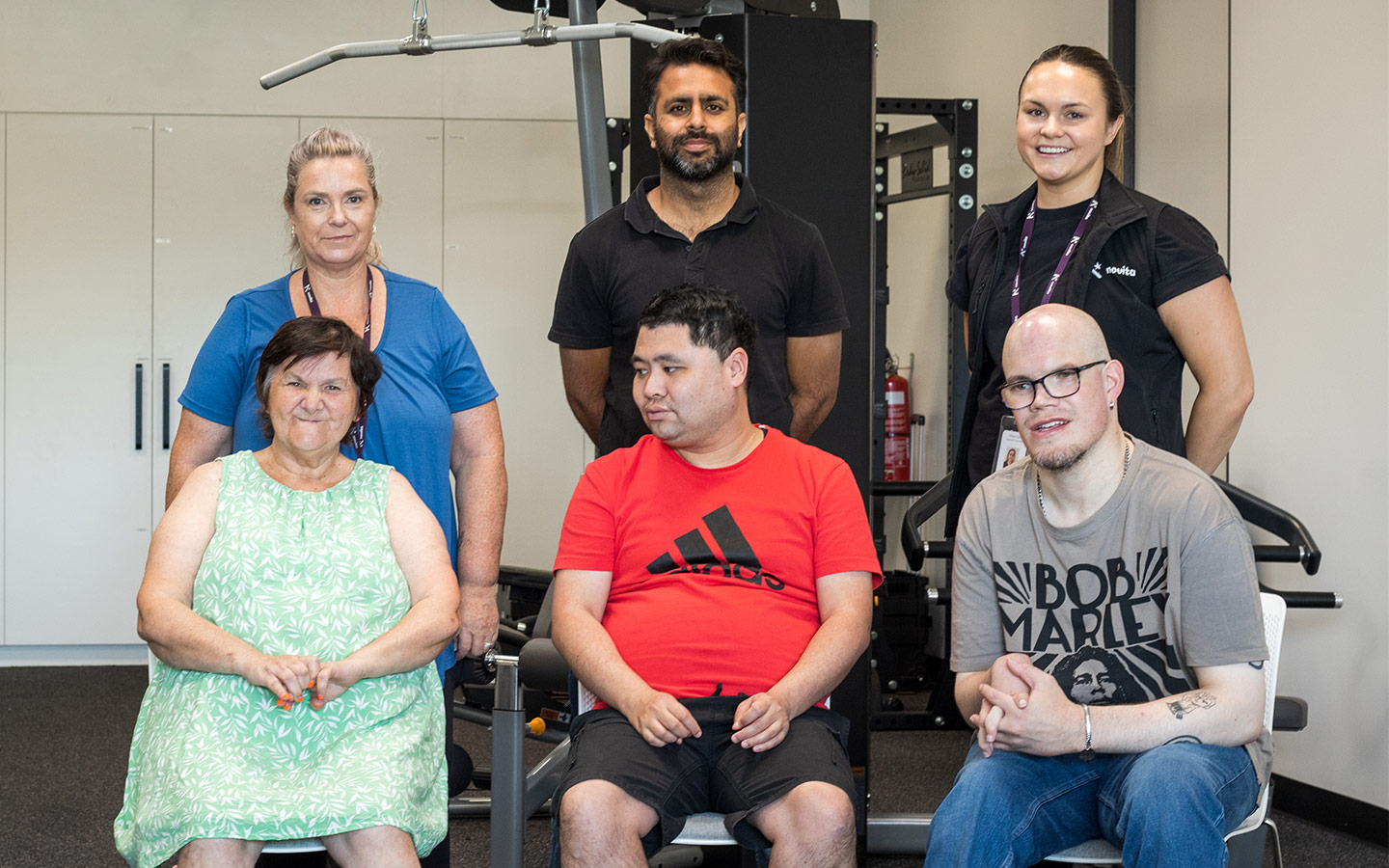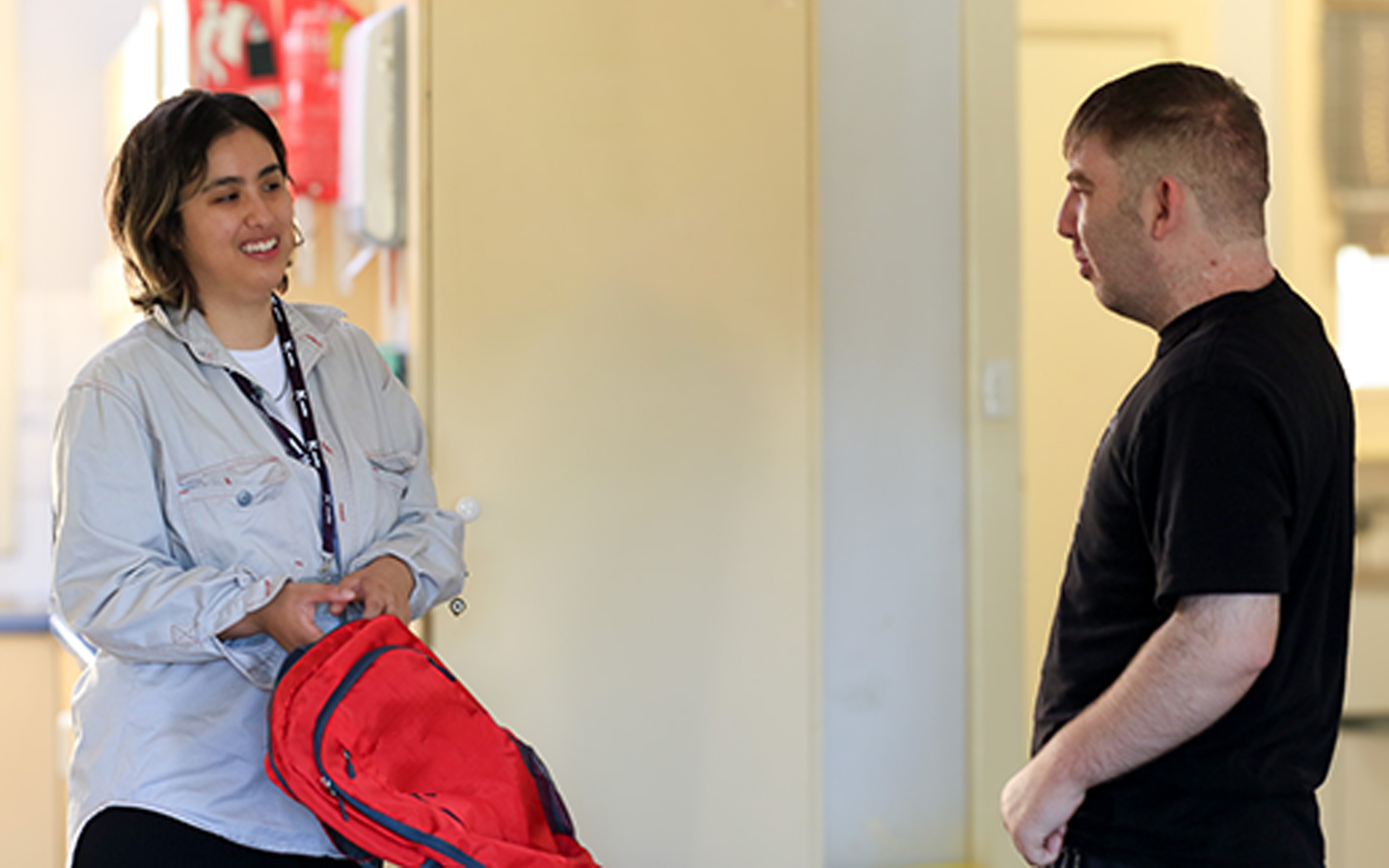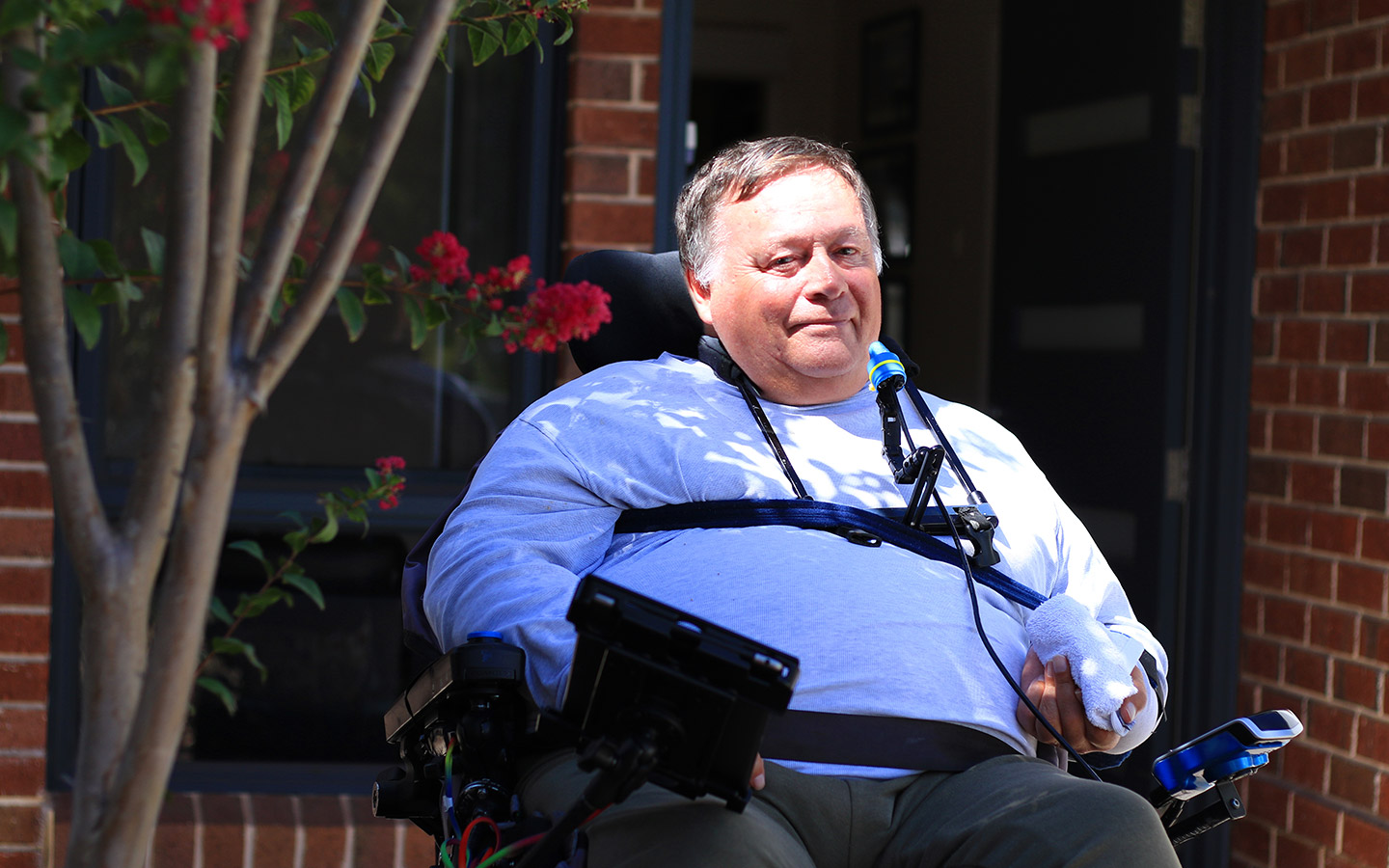Helpful Information
Top tips to make these Easter holidays accessible
access_time25min read
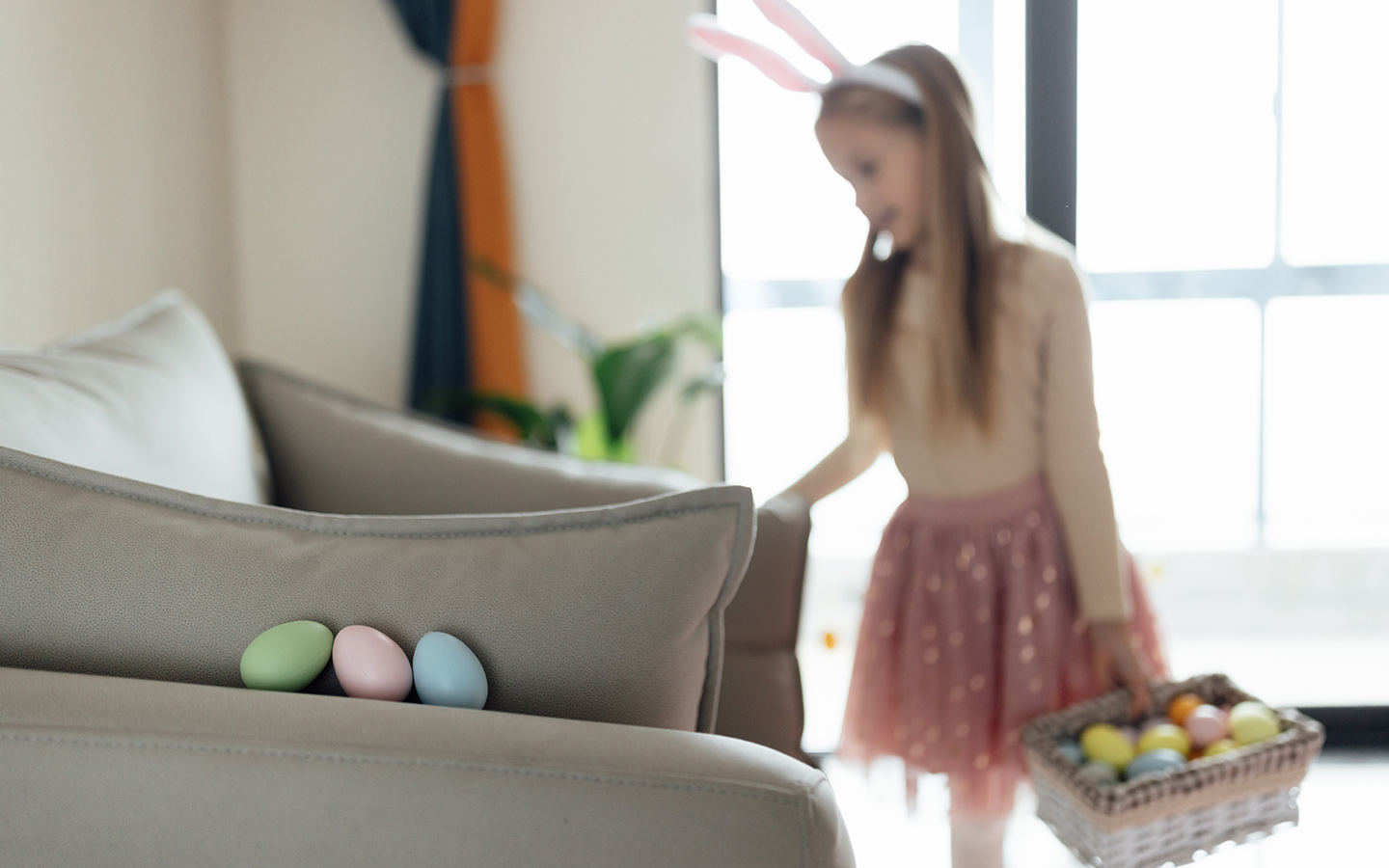
Are you a parent looking for fun things for your kids to do during the Easter holidays?
We have compiled a list of family, sensory friendly activities to have a hopping good time!
The Easter holidays are a great time to spend time with family, share sweet treats and most importantly, have fun. However, changes in routine, loud gatherings, or unfamiliar environments can sometimes feel overwhelming for kids with disability. Sensory overload from Easter egg hunts, family events, or bright decorations can make it difficult to fully enjoy the season. While these are difficult challenges, they are not impossible to overcome! Below, we’ve shared a list of sensory and family friendly ‘Easter-themed’ activities parents can put together so everyone can be involved in the festivities. We’ve also shared some communication tips that parents can use when preparing for the Easter holidays.
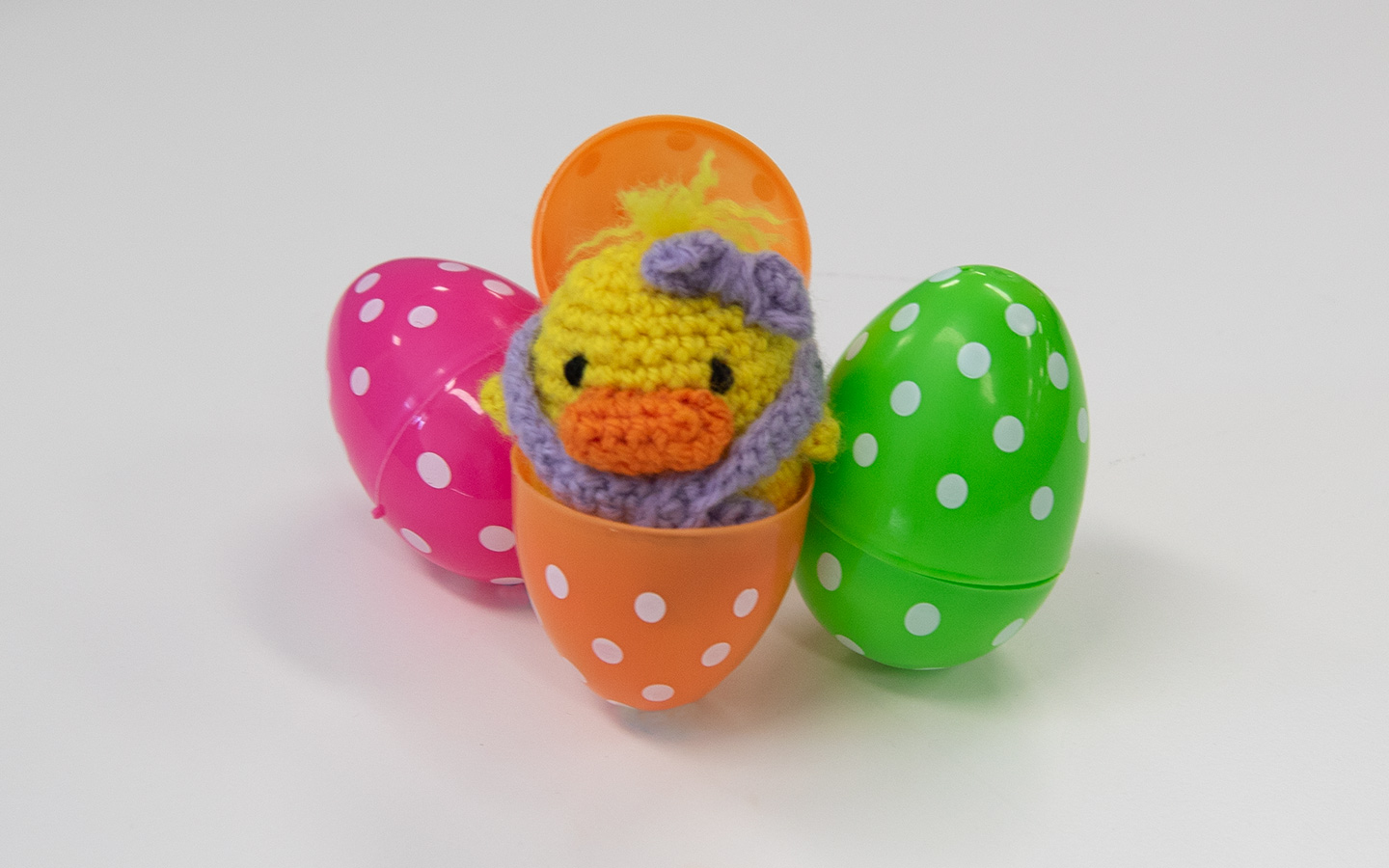
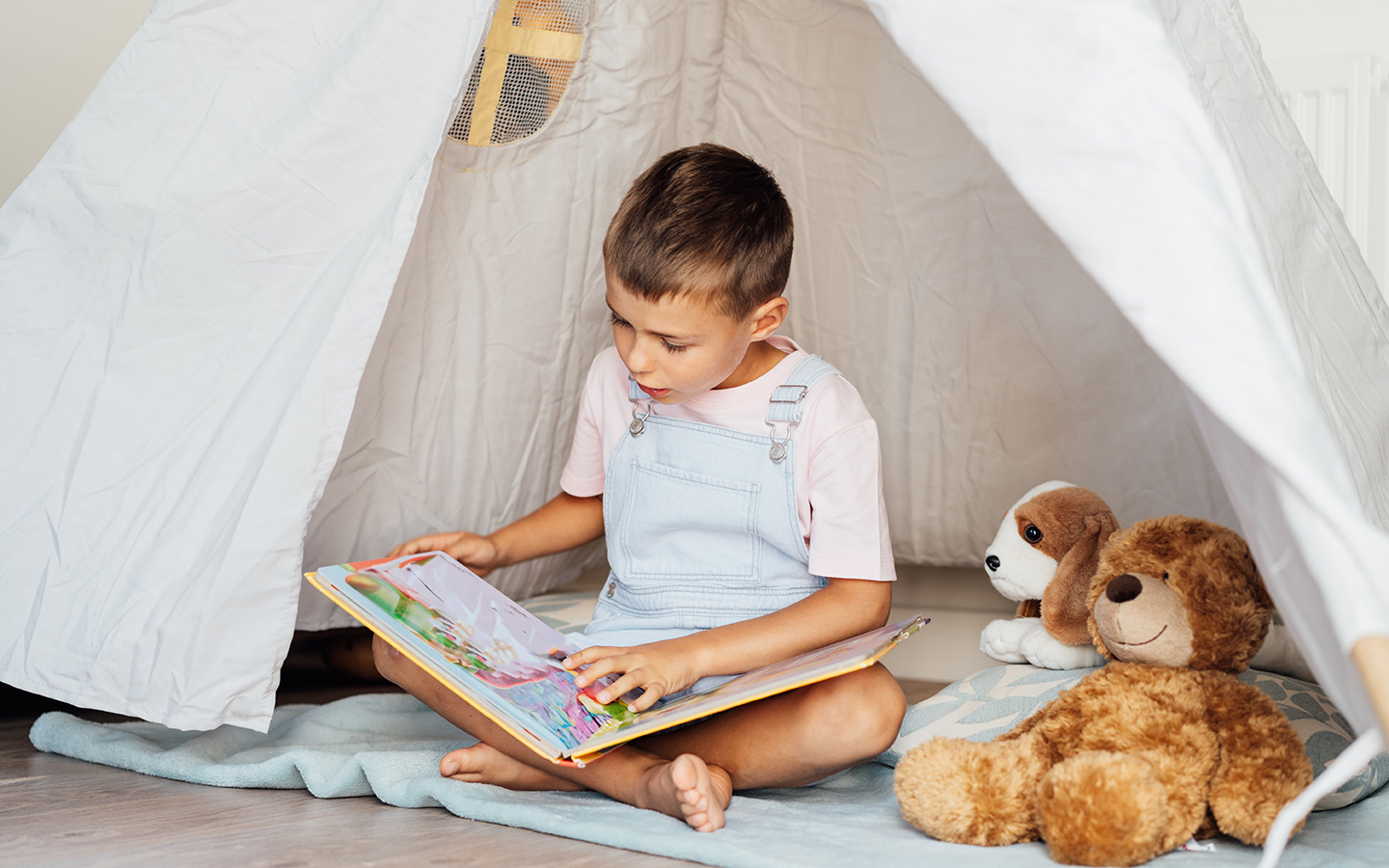
Rearrange your Easter egg hunt
While Easter egg hunts are the highlight of this holiday, parents should remember that not every activity is accessible for all. We recommend that Easter egg hunts are organised to cater for all needs.
For example:
- Hiding eggs at eye or reachable levels in an open space for wheelchair users,
- Include eggs with sound and texture so people with low vision can still participate,
- Instead of using aluminum wrapped eggs, you could use plastic coverings for Easter eggs to accommodate to sensory preferences,
- You could hold an Easter egg hunt in a safe and familiar setting (i.e., your child’s room) so they don’t get overwhelmed trying to look for eggs in a large garden or courtyard
- Provide alternative treats in case there is a sensitivity or allergy to chocolate (i.e., a toy or savoury treat)
- Provide a range of different eggs to find to create a sensory experience – this could include, plastic, wooden and chocolate eggs
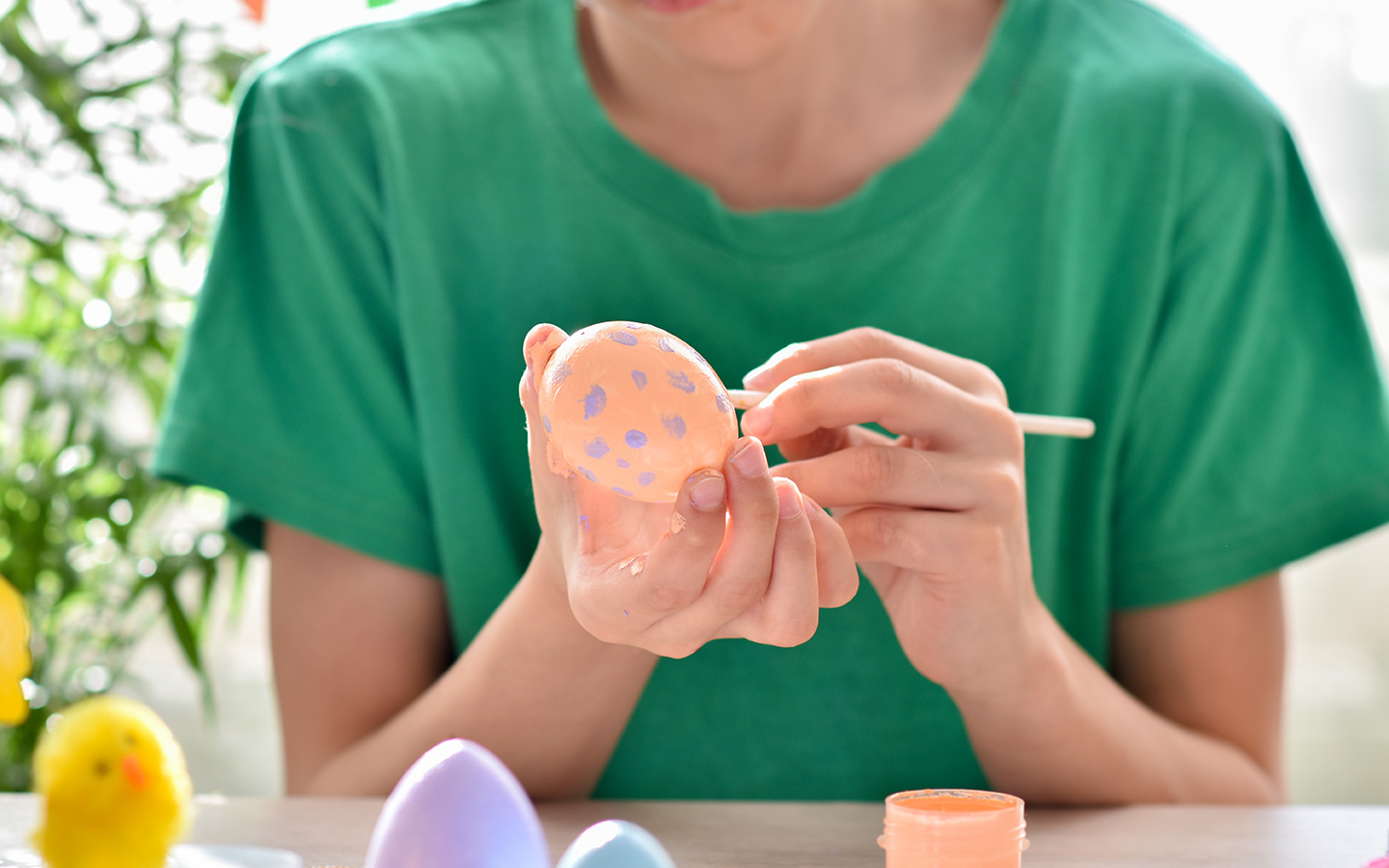
Get cracking with egg decorating
Egg decorating is a great way to build teamwork and creativity skills during the Easter season. If you aren’t up for planning an elaborate Easter egg hunt, egg decorating is the next best thing! We recommend using plastic eggshells as they are easy to hold, decorate and friendly towards sensory preferences. Easter eggs can be decorated in any style using finger paint or a small paint brush but we recommend families to use themes so everyone can be matching.
Examples of paint themes you could follow:
- Speckled eggs – keeping one bold colour and adding colourful dots throughout
- Family faces – everyone is assigned a family member to paint on the egg – these can be in any form, but are meant to be collectibles that people can save for years to come
- Bunny faces – to keep with the Easter theme, you can work together to create ‘bunny faces’. You can buy a craft kit from Big W or simply paint bunny faces straight onto the plastic egg
If you don’t have paint, or it causes any sensory issues, we recommend filling the plastic eggshells with fun insides.
Fun filled eggs could include:
- Plastic feathers
- Chocolate or sweet treats
- Sequins
- Beads
- Coloured paper
- Confetti
- Rice
- Split peas
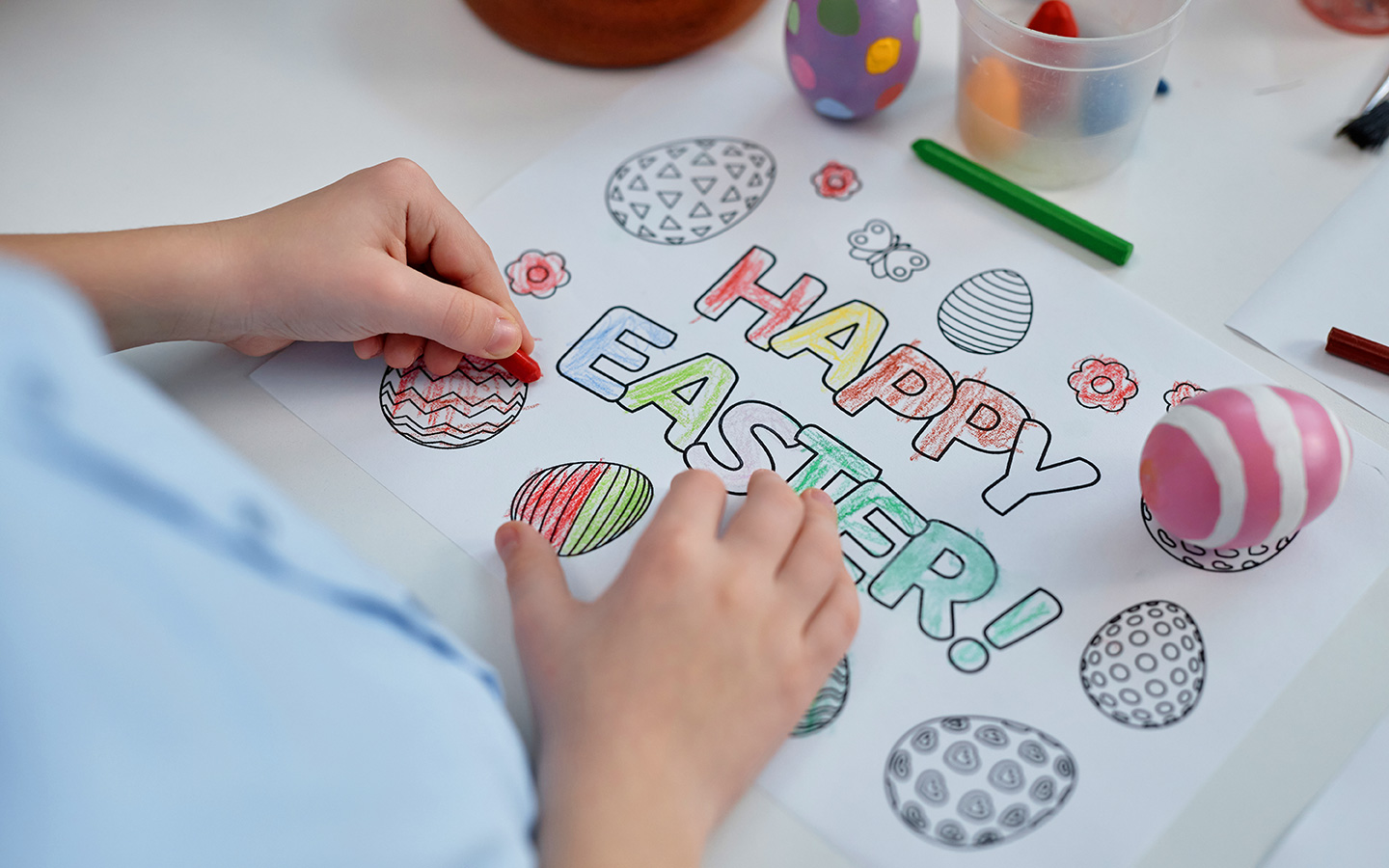
Colouring in as an alternative
If painting and intricate decorating isn’t something your kids enjoy, we recommend printing out some colouring in pages to celebrate Easter. Colouring may offer a range of benefits for people with disability including reducing stress and anxiety, encouraging focus, mindfulness and hand eye coordination. It can also support expression without using speech and promote creativity and independence skills. Our therapists recommend setting up a ‘colouring in’ table with print outs from Crayola, Homemade Gifts and Pinterest.
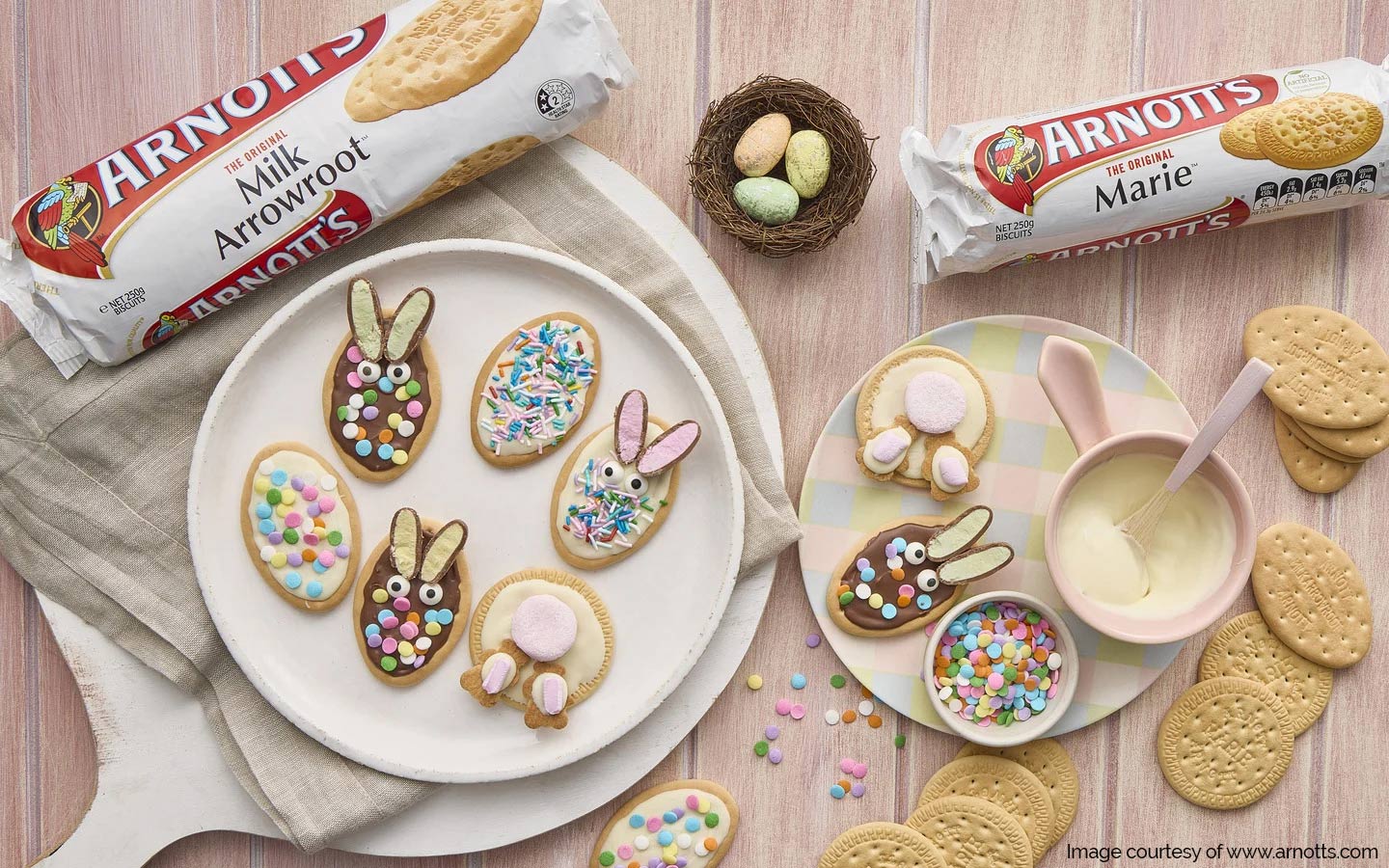
Bake a bunny or two!
Cooking and baking are great ways to keep entertained while also doing something fun with the family. We also recommend themed cooking as an activity because it offers many benefits for kids, including:
- Improving verbal communication skills
- Increasing focus and attention
- Supporting independence
- Boosting self-confidence
- Promoting family bonding
During Easter, there are many baking and cooking ideas parents can arrange for their kids. We’ve listed a few fun and easy ones for you to try:
- Easter biscuits (simply buy some arrowroot biscuits and decorate them with coloured icing)
- Bunny tails (marshmallow and coconut balls)
- Easter egg hunt brownie – (bake some brownies and sprinkle them with sweet treats on top–you can either use packet mix or bake from scratch)
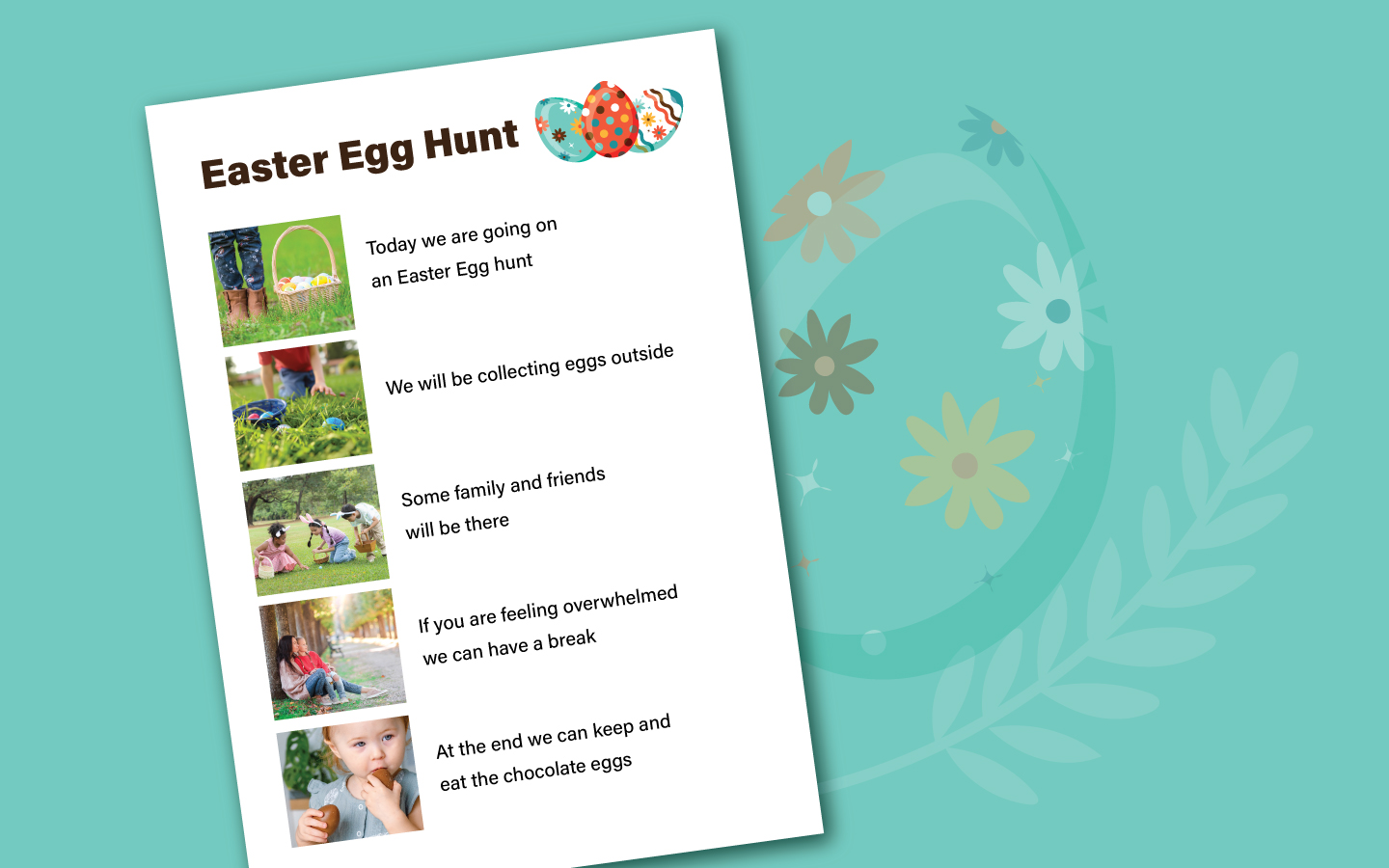
Communicating throughout the holidays
Creating a social story to prepare
For some people with disability, attending an event with lots of people can sometimes be a challenge. Before an event like Easter, which can involve a lot of different people coming in and out of the house, we suggest putting together a ‘social story’, so people know what to expect on the day. A ‘social story’ is a step-by-step guide using images and simple language which visualises what to expect at a certain event or occasion. Here is an example of a social story below:
Describe the event location – is it home, what will it look like, will it be any different from usual (i.e., with decorations or lots of chocolate)?
Once they have arrived at the event location, describe what they will see (i.e. decorations of rabbits, Easter eggs), what they will hear (i.e., music on the stereo, people talking), and who they will see (i.e., family members and friends).
What the event is – describe an Easter egg hunt in detail, what is it, how many people will be participating and what they can expect (i.e., finding eggs around the garden or home, collecting eggs in a basket, eating the eggs afterwards or sharing them with friends)
Parents should also provide some prompts for what their kids can do if they feel uncomfortable or if they need some support if they are feeling overwhelmed. Provide some visuals of who their support person will be and how they will be dressed on the day.
It is important to provide a step-by-step guide to the day to prepare and adjust for any change. By using visual prompts and examples, people with disability can feel more at ease when meeting new people and going to a new place. It is also pertinent to ensure that you indicate who the support person/team is in your social story.
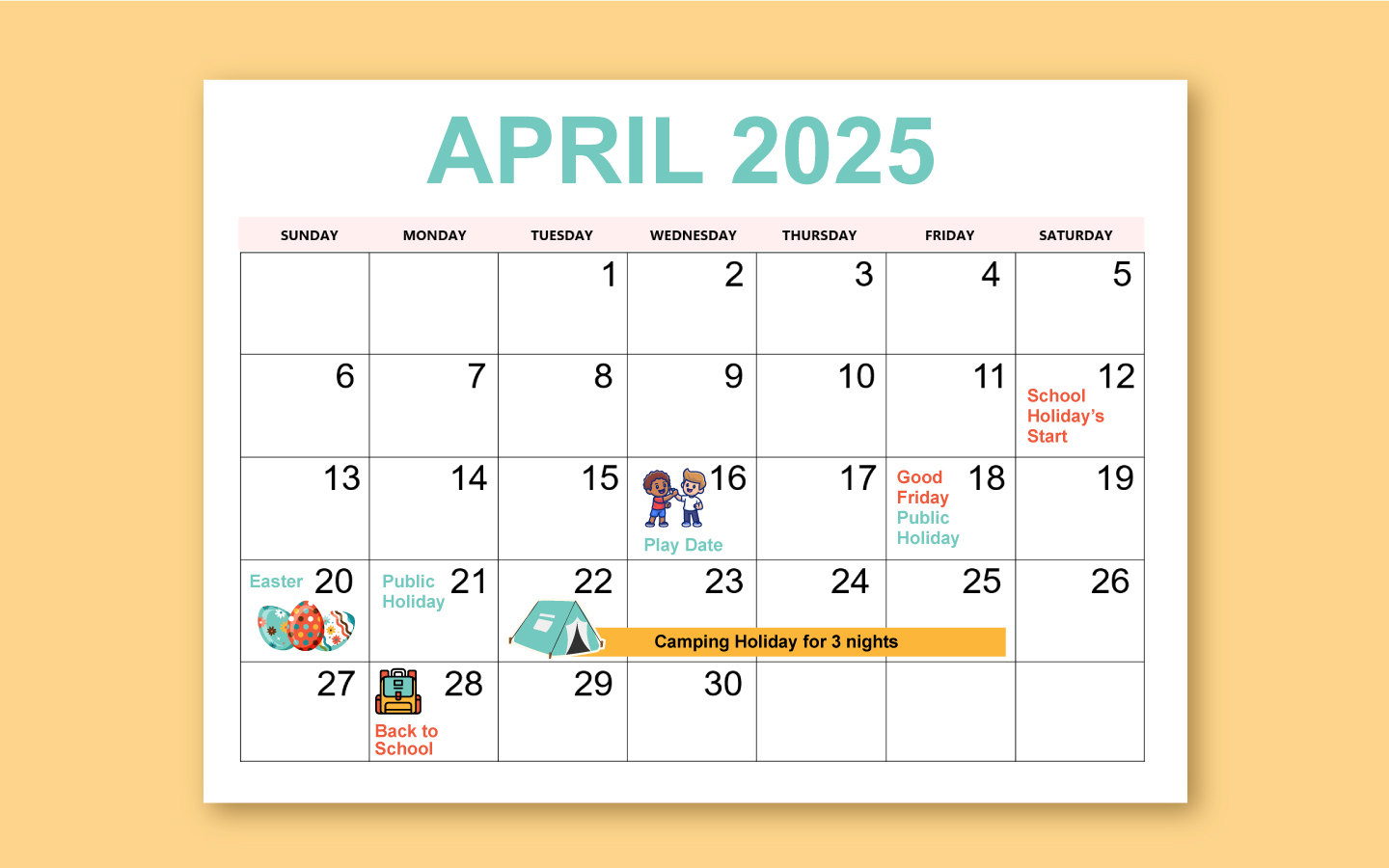
Offering different forms of communication
Using a visual support/calendar
Our therapists recommend parents use visual support, such as a calendar or a choice board to display the change in routine. Use these resources to explain disruptions to routine, including:
- Public holidays – when they will occur and why, add when the shops won’t be open or if they will miss any regular appointments
- School holidays – mark them clearly so your child knows what to expect and can prepare to return to school – we recommend adding any playdates or events to your school holiday timeline as well
- Easter events – add each Easter event to this calendar or choice board – if you are having an Easter egg hunt, use an egg as a visual prompt. If you are going to church, use a cross symbol. By highlighting these events, kids will know what to expect and even begin to get excited!
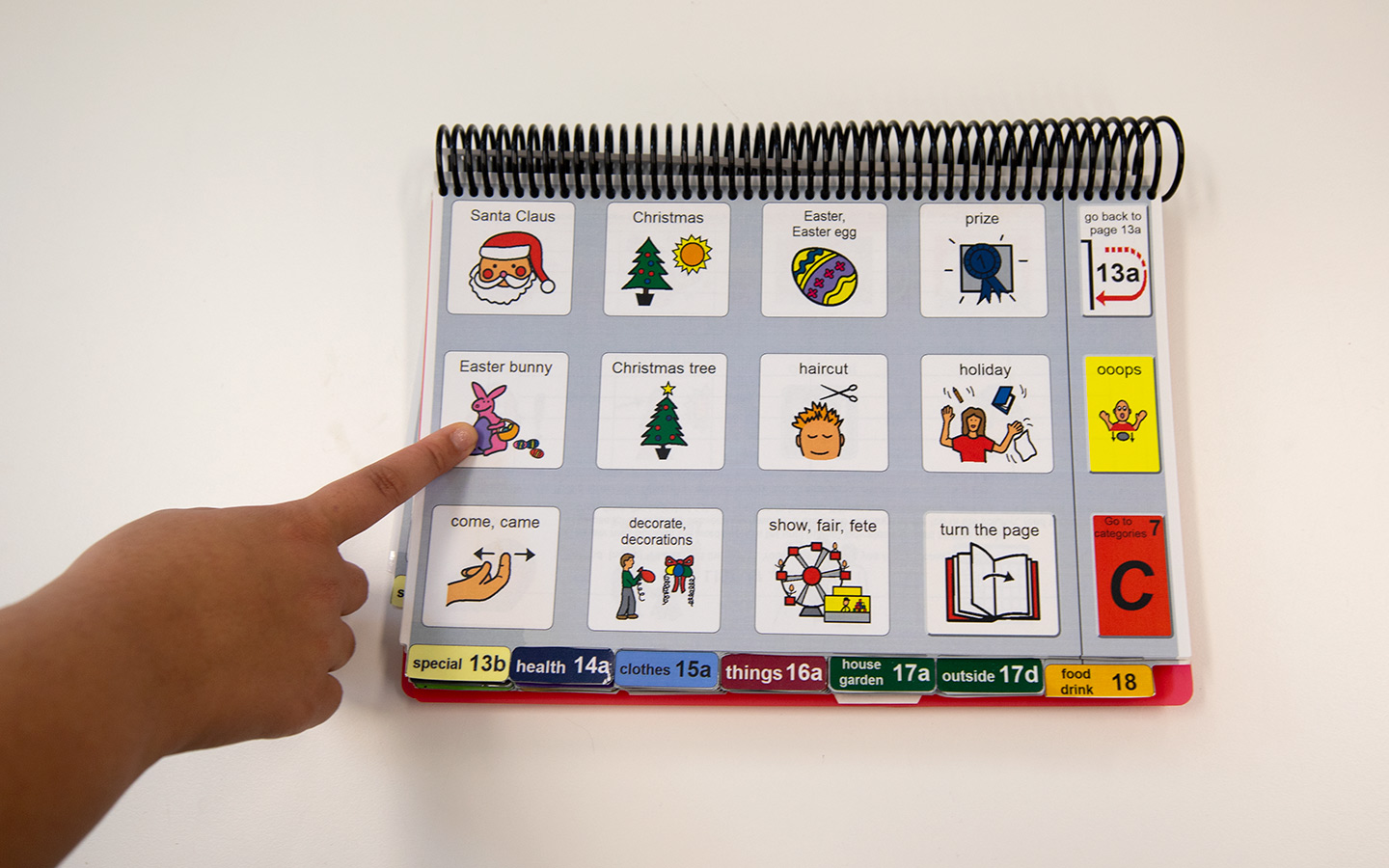
Using a communication device
Parents should provide different options for kids to communicate and express themselves during the Easter holidays. You can do this by recording a message and adding specific messages into their AAC system. Some helpful language during Easter activities may include:
- Easter
- Eggs
- Easter bunny
- Chocolate
- I need a break
- I can’t see it
By including these messages, you can prepare your child with some of the conversations they will be having on the day.
We wish all families a fun and festive Easter period.
We encourage parents to use our suggestions above to ensure that their kids can still participate and enjoy this special time with friends and family. If you ever have more questions about making events accessible for your child or other people with disability, please don’t hesitate to reach out to us.
For more information about how to prepare for events, meeting new friends and hosting different activities, read our blog posts.
